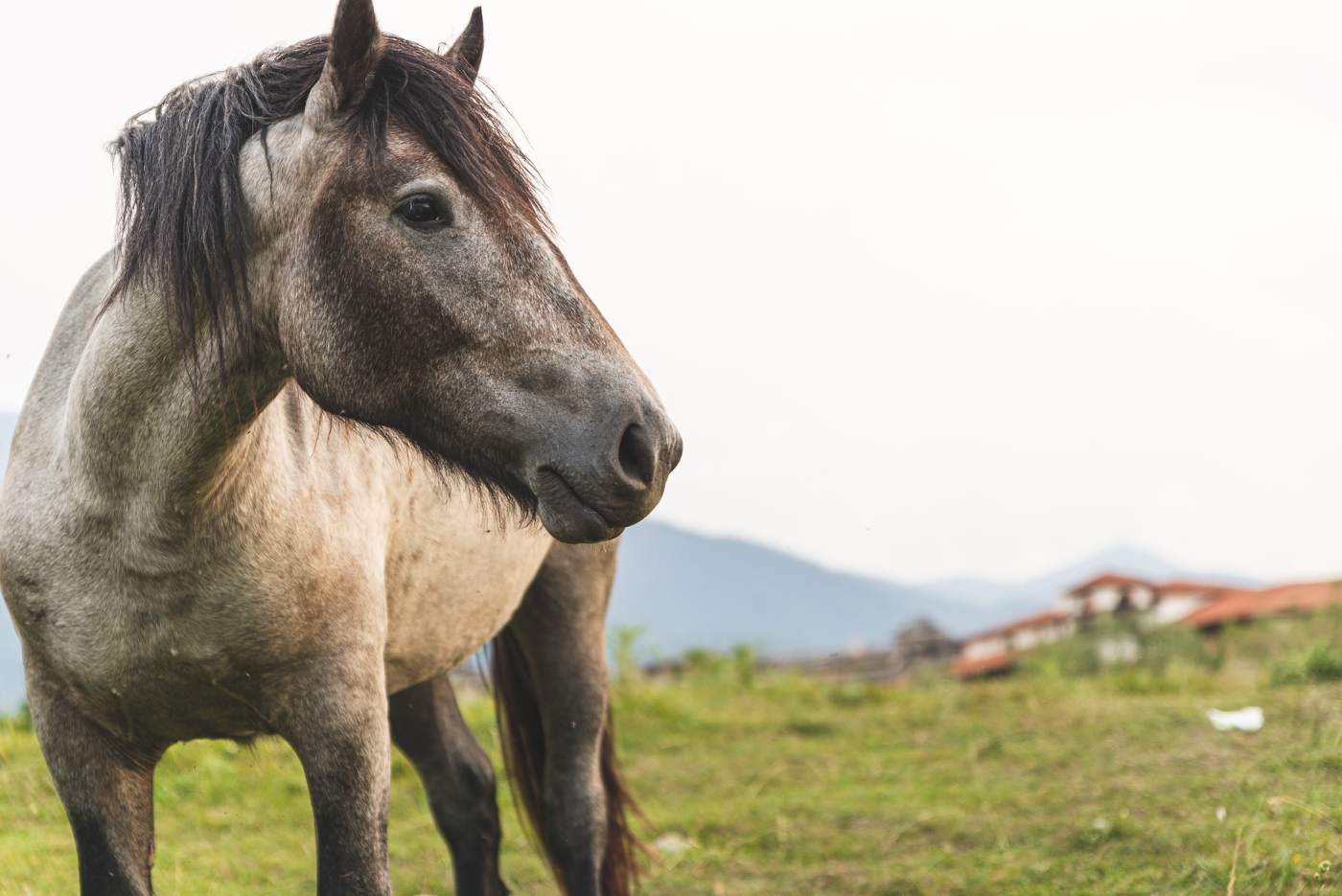For those of you who don't know, Cushing's disease is a fairly common endocrine disorder, usually found in older horses. Simply put, it's a tumor on the pituitary gland that affects the horse's natural production of hormones.
The Risks of Cushing’s Disease for Hooves
Cushing's disease can weaken your horse's immune system, making them more prone to infections, like reoccurring abscesses in their hooves. Abscesses are usually caused from a puncture wound or deep crack in the hoof. If not treated right away, bacteria can get inside the hoof capsule and fester, causing a painful pocket of pus. A horse with a compromised immune system won't be able to fight off the infection as easily as a healthy horse.
Thankfully, abscesses are easily treated, if you catch them early. If it hasn't travelled up the hoof to the coronary band, your vet can usually find and dig out the pocket of pus. Think of it like us getting a blister. Once we drain it and relieve the pressure, we feel better.
If the abscess is higher up in the hoof, you will need to draw it out. A poultice or warm water and Epsom salts will usually help. You'll probably want to keep the hoof wrapped up until it completely heals. With your horse's weakened immune system not able to fight off the infection on its own, your vet may prescribe something to completely get rid of the bacteria and stop it from spreading.
Cushing's disease can prevent your horse from breaking down, absorbing and digesting their food properly, especially grains with lots of carbs and hay with lots of sugar. This could lead to laminitis, which is very similar to diabetes in humans. The laminae inside the hoof that attaches the coffin bone to the hoof wall swells, stretches and separates from the bone, causing it to drop.
Laminitis can be managed with proper trims or shoes and a regulated diet with less sugar and carbs.
In my column from a few months ago about founder and laminitis, I wrote that there's always another underlying issue that needs to be treated in order to prevent flare ups. Here's the problem... Cushing's disease isn't curable, but it can be managed.
Managing Cushing’s Disease
I probably should've started with this, but just to ease your mind, the tumor on the pituitary gland is benign, meaning it's not cancer. I'm not a vet, but the pituitary gland is at the brain stem, so I doubt surgery is an option. Your vet may, however, prescribe meds to help with symptoms. They might want to do blood work to make sure sugar and insulin levels are in the normal range.
The rest is up to you. Clean out your horse's hooves often and keep them on a regular schedule with your farrier. Stretched out laminae is an easy way for bacteria to get inside the hoof, potentially causing an abscess.
With a weakened immune system, you might want to keep your horse's living area extra clean and also keep them up to date on vaccinations and deworming.
If you can, find hay with a lower sugar content, or put your horse out in your pasture over night, when the sugars are lower. There are lots of grains and supplements designed for older horses that have fewer carbs and are more easily absorbed and digested. Cushing's may also cause your horse to drink more than they normally do, so make sure they always have access to fresh water.
Even with medication, taking every precaution and brushing your horse every day, they'll still look like a shaggy pony. You may notice your horse tires more easily and lays down more often, but that doesn't mean you still can't hop on and go for short rides, just don't over do it. My 35-year-old Arab has had Cushing's for years. I brush her every day and she still looks like she's neglected, but she still rips around the field, in between naps.
This is our monthly feature, “Ask a Farrier,” a Q and A with farrier Karen McMann. Karen has been a full-time farrier for 19 years. She graduated in 2002 from the Canadian School of Horseshoeing, where she studied under Pat Cullen. She serves on the Advisory Board of Equi-Health Canada and Equi-First Aid USA as a Farrier/Hoof Health Support specialist. Karen lives and works outside of Okotoks, Alberta.
If you have a question you’d like to ask a farrier (about horseshoeing, farriery, hoof and horse health, blacksmith tools, working as a farrier, etc.), email or leave it in the comments below. Every month, we’ll pick one question to answer in our feature.







.jpg)

